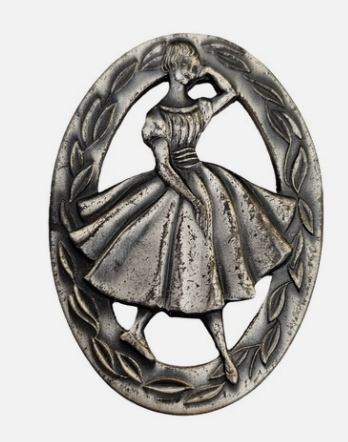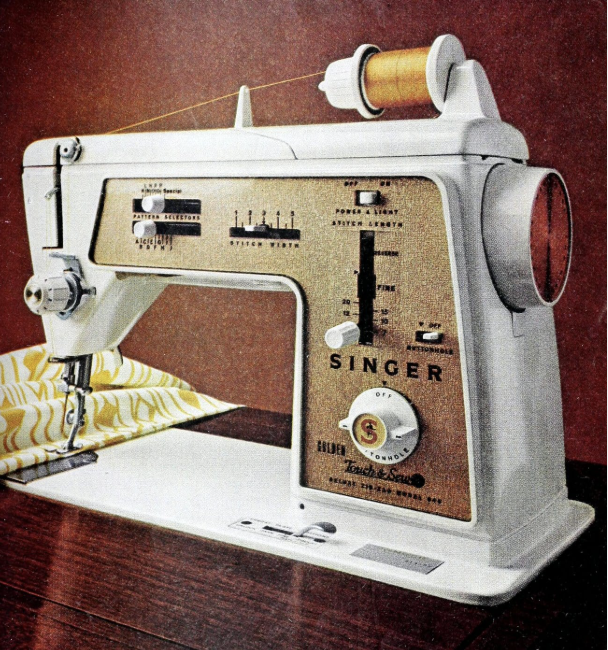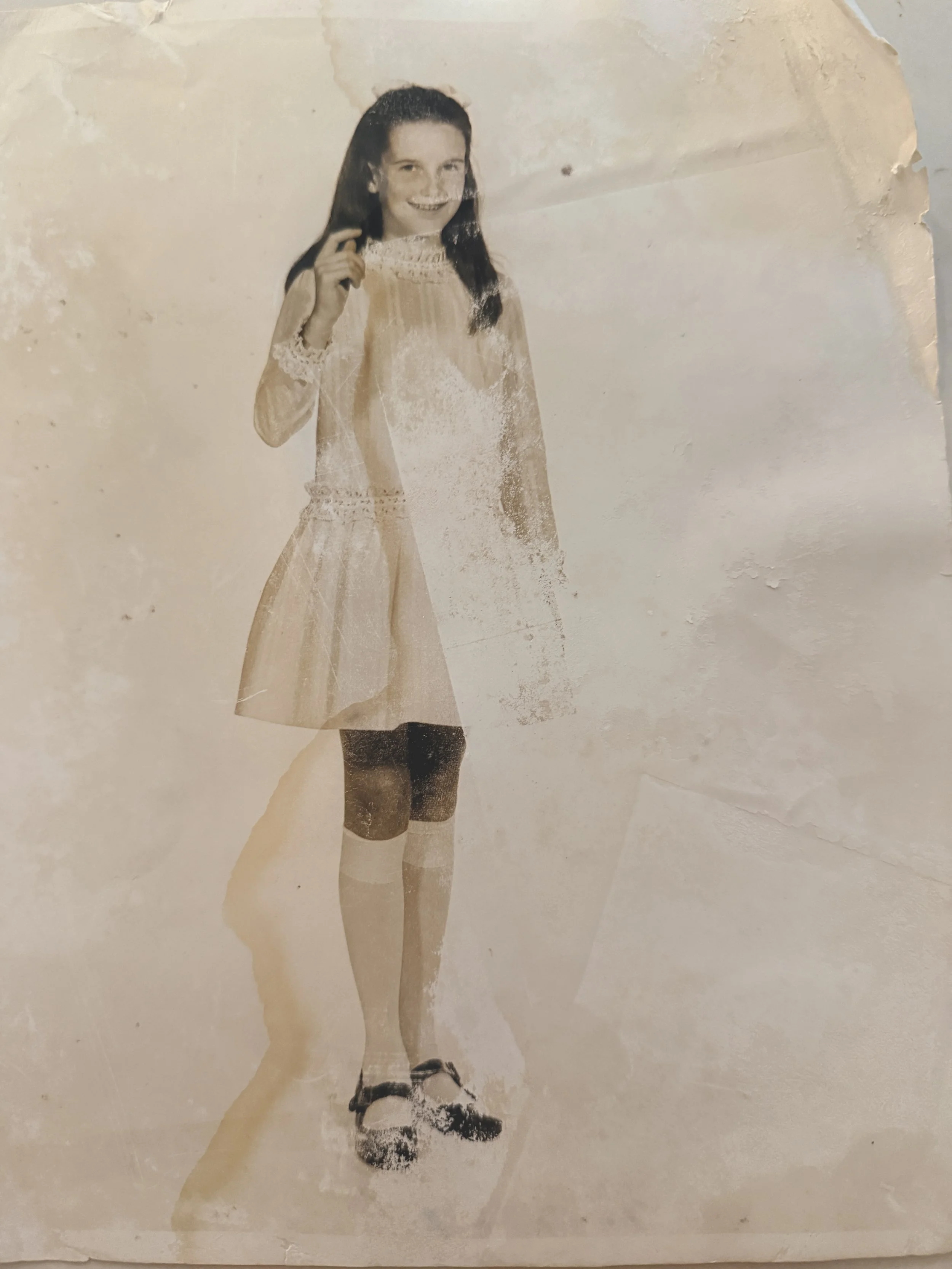My Mother Was An Excellent Seamstress
My mother was an excellent seamstress. She sought perfection, even if it meant ripping out and resewing seams more than once to get the look just right. I did not, and do not, have that patience or visual-spatial skill. As a kid, I wished I did, and that I was more like her.
So when I was 12 and Mom asked if I wanted to take sewing lessons, I said yes.
On the first day of the six-week summer course, eight of us sat in front of identical sewing machines in the classroom area of a fabric store. Our instructor, Mrs. McCloskey, began to talk. Whatever we made would be automatically entered into The Singer Company’s national Young Stylemaker’s competition.
I didn’t pay attention until she mentioned the prizes. Winners at the local level would win a medal, then compete at the regional level for a cassette player. At the state level, a sewing machine, and at nationals….
Wait, what? A cassette player? I wanted it.
Similar to this one.
After explaining the rules, blah blah blah, Mrs. McCloskey invited us to choose a pattern and fabric.
Thinking about the prize, I watched the other girls choose a vest, jumper, or simple skirt pattern to be made in heavy cotton or wool. Purple was popular, though some went for dark green or blue. The colors and textures were perfect for fall and back-to-school. I watched.
“Ok, girls, let’s get started. Michelle, have you chosen a pattern?”
“I am going to make a party dress.”
More than something I wanted to wear, I wanted to make something that would stand out and impress the judges. I found a pattern for a long-sleeved frilly dress with a high neck and dropped waist, then chose a light cotton, eyelet fabric in yellow. I’d never wear it, but it was different from everyone else’s.
My pattern had 12 different pieces. You can’t cut fabric until the pattern is pinned smoothly. It is difficult to cut eyelet because the thin material moves around easily, and you have cut slowly so the pattern doesn’t tear. Sewing was already harder than it seemed.
The other girls, making simpler outfits using easier fabric, finished cutting within the hour. My pieces looked ragged and I didn’t finish cutting until halfway through the second class.
I lagged behind throughout the course, watching school-perfect outfits come to life while my yellow mess was unidentifiable, despite my best effort.
With two classes left, girls were adding appliques or choosing their next pattern, while I struggled with the neckline and zipper.
“Can I work on this at home?”
Mrs. McCloskey hesitated. “Your project is supposed to stay at the store, but, sure.”
My mother was an excellent seamstress. She also sought perfection. She watched me struggle for 10 minutes before her natural inclination kicked in.
First, a foot stomp. Several foot stomps.
Next, direction. “Use two hands. Keep one hand in front of the needle and the other one in back to guide the fabric. Press the foot pedal gently… gently,
GENTLY!”
Finally, “Here, let me help.”
I stood by as Mom installed the zipper, fixed the neckline and adjusted the waistline.
When she was done, the dress looked good – very good.
Back in the classroom, I hand sewed the hem and ribbon to the waist. The dress was done.
I don’t remember the local competition or what I did with the medal, but I do remember what it felt like to hear my name and know the cassette player was mine when I won regionals.
Young Stylemaker award pins
The dress also won at the state level. The sewing machine, which I didn’t care about, but Mom wanted, was going to be hers.
The dress would go on its own to New York for the national contest. Mom took me to Singer’s corporate offices in Boston so I could be photographed in the dress, interviewed for The Singer magazine, and we could pick up Mom’s prize. After the pictures and interview, a woman came in with the sewing machine and some papers.
“We need your signatures on a few documents,” she said. “This one gives permission to publish and send the dress to New York, and the other one says you made the dress by yourself.” Turning to Mom, she continued, “As her parent, you’ll need to sign as well.”
I lived in a house with hard edges. Right and wrong were clear cut, and my parents were unquestioned, infallible arbiters with very high standards.
For example, something was true or it was a lie.
I crumbled inside and I’m sure my face visibly flushed. I had cheated. How had that not registered much, much earlier? I hadn’t made the dress, was going to have to publicly say that, and give back the cassette recorder. That truth, and an icy rush of shame, came suddenly, a brutal, physical weight.
My mother, beside me, stiffened. I braced for the inevitable, the confession.
But my mother did not speak up. She did not speak at all. I looked at her, and she nodded. I signed, then she did, too.
The woman smiled, gave us the new sewing machine, led us to the elevator and wished me luck at the nationals. We were silent on the way to car.
As we left the parking garage, Mom began to talk to herself, giving voice to how I had felt in that room. It was there in the tentative way she spoke. She seemed to be trying out her thoughts to hear how they sounded.
“What could we do? We had to sign. The photos were taken. It was too late to…. what would I have said? We had to sign.” Then she just moaned.
Listening to her words felt... actually…more than ok. I hadn’t known what to do in the moment either. We were in this together, both in the wrong.
Instead of turning towards home, Mom drove toward Franklin St. and we went straight to Cathedral of the Holy Cross Church, to confession.
Afterward, on the ride home, Mom’s voice was stronger. “I should not have signed that paper and neither should you have. We have to live with this, you and me. We are not going to tell anyone, even your father. Do you understand? Once we get out of this car, we will not discuss it again. Ever.”
Fortunately, I did not win the national level, so did not have to go to Paris. I used the cassette player until it broke and my mother made curtains, clothes and Halloween costumes on that sewing machine until she was 81 years old. We never again talked about how we had acquired it.
photo, worse for the wear.



